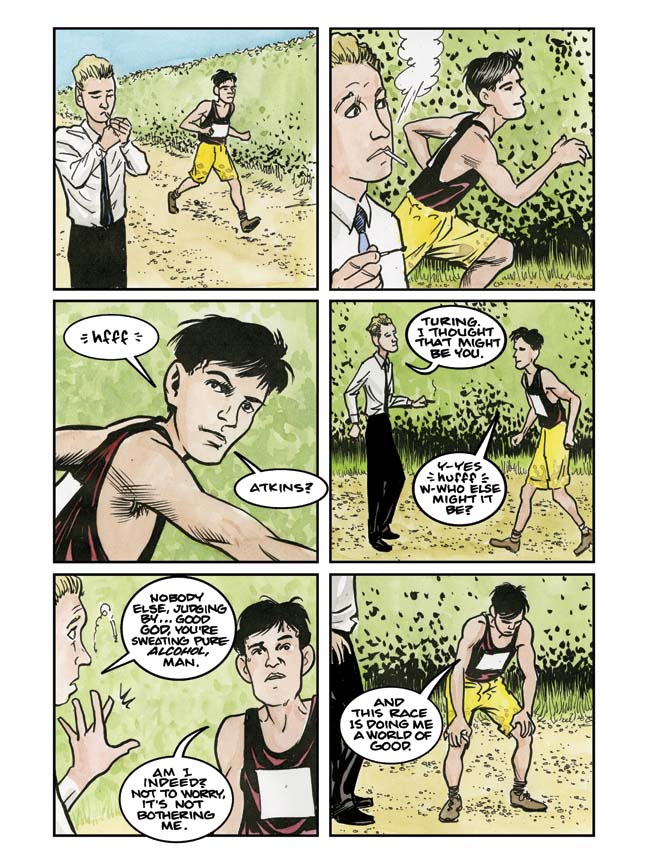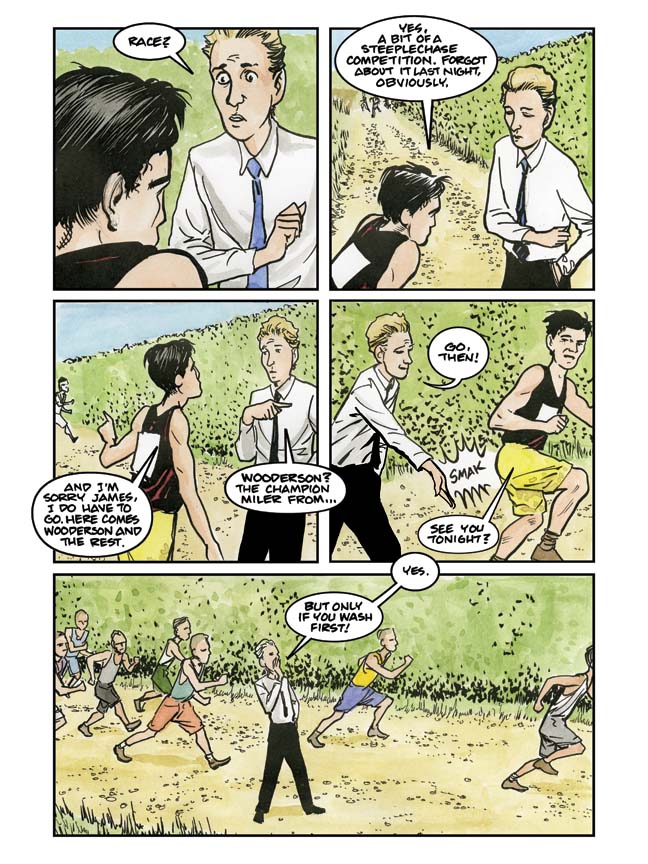“Alec Pryce was getting rather [illegible] with his Christmas shopping. His method was slightly unconventional. He would walk around the shops in London of Manchester until he saw something which took his fancy, and then think of some on of his friends … who would be pleased by it. It was a sort of allegory of his method of work (though he didn’t know it) which depended on waiting for inspiration.”
That’s how Alan Turing’s only known foray into writing fiction begins. Alec Pryce is a thinly disguised version of Turing himself, but from what little survives of the manuscript he’s nowhere near as interesting as the real thing. There’s not enough left of the story to tell whether it would have been any good, but there’s more than enough of Turing’s legacy to tell us that the world would have benefited from many more years of his brain at work on problems, big and small.
If Turing finished this story, the results are lost to us, just as Turing himself is. Had he lived, he would have turned 100 this past Saturday. But after solving one of the most difficult problems in mathematics, playing a pivotal role in defeating the Nazis, and inventing the universal computer (not to mention the canonical test for artificial intelligence) all before the age of forty, he died, almost certainly at his own hand. In 1950s England, the law that snared Oscar Wilde was still on the books, and Turing was open about his homosexuality. A conviction, hormone treatment (it was either that or jail time), and depression followed.
There’s so much more to say about him that Leland Purvis and I have created—well, to be honest, still are creating—a graphic novel called The Imitation Game, which Tor.com readers will be the first to see later this year. We’ve been working on it since 2008, so it’s 100 years in the making…in binary, anyway. Here’s a short sequence as a teaser, in which we see yet another facet of Turing. In addition to being a mathematical genius, he was a world-class runner, and competitive even the morning after a good bit of drinking…
Click the pages to enlarge.


Jim Ottaviani is the author of eight graphic novels about scientists (so far), on topics ranging from physicists to paleontologists to behaviorists. He’s probably the only comics writer whose books have received acclaim from Physics World, the New York Review of Books, and Vampirella Magazine. His biography of Richard Feynman was just released in August, 2011 from First Second (check out excerpts here) and upcoming works include The Imitation Game, about Alan Turing… keep your eyes on Tor.com in 2012 for that!











Cool, I look forward to this. I enjoyed the Feynman bio.
I’m excited about this, too. The Feynman bio was a lot of fun.
Very much so looking forward to this. Looks pretty great.
Cannot wait! Jim’s amazing.